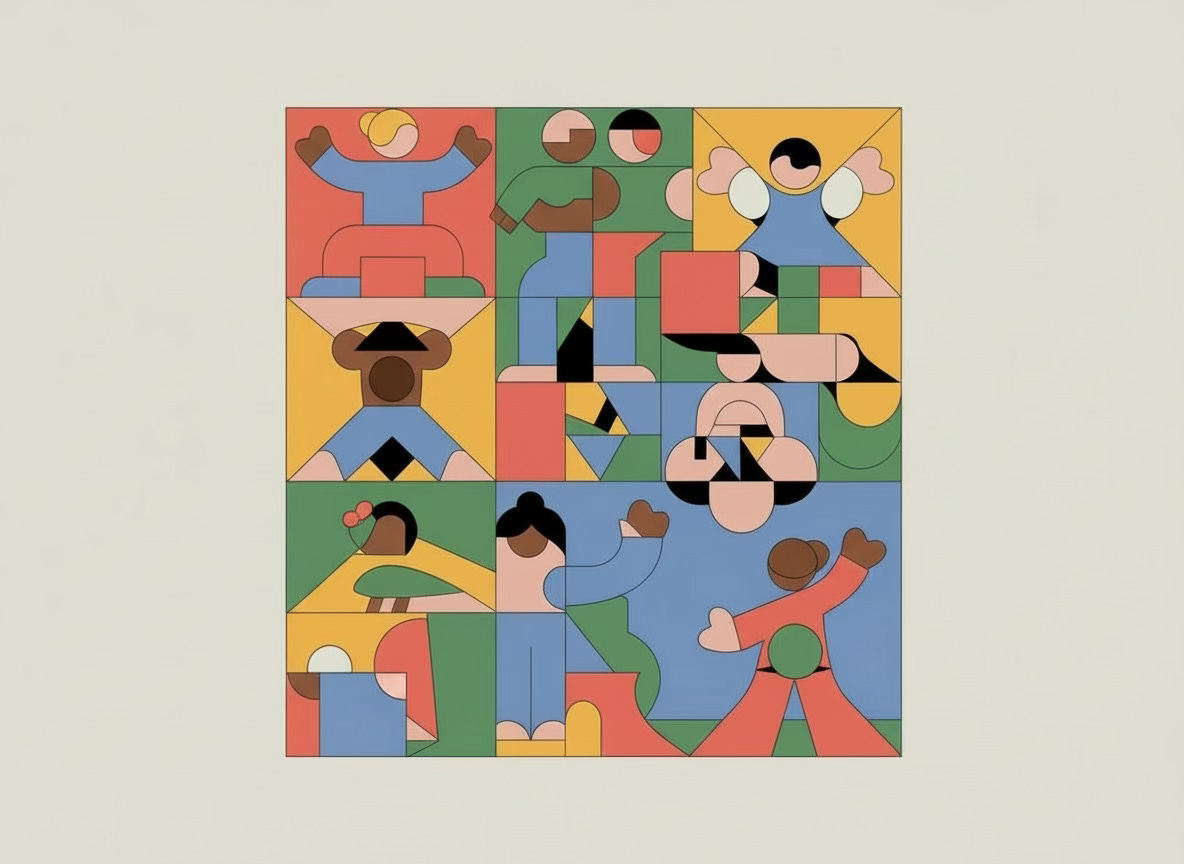Can Play be a Pathway to Peace?
How to honour your gifts when the world is burning
“How do I talk about play when the world is burning?”
The question hung in the air during a recent coaching call, heavy with the weight of current events. My client, someone with a natural gift for creating joy and building community, was wrestling with a familiar tension: How to honour their nature while ICE agents conduct raids in Chicago, whilst families are torn apart by politics, whilst every headline brings fresh despair?
It’s a question I hear often in different forms. The creatives, the community builders, the joy-makers wondering if their work matters against the backdrop of global crisis. There’s a shame in it too - a sense that focusing on these things reveals our privilege, marks us as somehow separate from the real struggles of our time.
And perhaps it does; my ability to write this article is an expression of the liberty I get to enjoy. I need to recognise, integrate and remain sensitive to the reality of others: the truth, from my perspective, isn’t universal. I must be gentle.
The ideas I present as The Unremarkable Entrepreneur can’t and won’t work for everyone.
But play has always been important. A shared language. It endures amidst the psycho-drama (and its horrifying real-world consequences) that’s unfolding around the world, and will always be found in the rubble.
In fact, history shows us that play often emerges most powerfully in our darkest moments. Perhaps no example illustrates this better than a remarkable Christmas morning over a century ago.
The Game That Stopped a War
In the midst of World War I’s grinding horror, something extraordinary happened.
British and German soldiers, hearing familiar carols drifting across no man’s land, began to emerge from their trenches. What followed wasn’t a tactical manoeuvre or diplomatic initiative – it was a football match.
These men, who hours before had been trying to kill each other, found common ground in play. They traded cigarettes, shared photos and, for a brief, luminous moment, remembered their shared humanity. The game didn’t end the war, but it revealed something profound about trust that would echo through generations.
From Trenches to Twitter Threads
A century later, our trenches look different. They’re carved by social media algorithms, political ideologies and economic divides. But the principle remains: whilst everyone shouts their version of truth across these digital no-man’s-lands, very few are building trust.
As this insight emerged during our coaching conversation, my client’s struggle took on new meaning. Here was someone with a gift for creating joy and building community, yet feeling the pressure to abandon play for political commentary. But what if, like those soldiers in 1914, the path to connection isn’t through more debate, but through rediscovering our shared capacity for play?
What emerged was something powerful: Play isn’t a distraction from serious work – it’s often the only way to do it effectively.
The Language We Already Share
“You’re not building a brand,” I found myself saying, “you’re building a campfire.” Think about what happens around a campfire - stories are shared, guards come down, connections form naturally.
Play works the same way. Whether it’s a board game at a tense family gathering, impromptu sports in a refugee camp, or icebreakers in a divided community meeting, play creates a space where people can drop their defences and remember their shared humanity.
This insight visibly shifted something for my client.
Suddenly, their work wasn’t about choosing between play and purpose - it was about using play as a bridge. The question became more practical: What if their work wasn’t another voice in the chaos, but an invitation to remember how to trust? An invitation to heal across idological fault lines?
From Battleground to Playground
These aren’t just nice ideas. In a world drowning in hot takes and political commentary, what it needs are practical tools for rebuilding trust in our homes, our communities and our conversations. This is where play becomes revolutionary – not as an escape from reality, but as a strategy for engaging it more effectively.
What struck me most was watching my client realise that being “the play guy” wasn’t limiting – it was liberating. By embracing play as a trust-building tool, they could move beyond commentary to creation. Instead of adding another voice to the chaos, they could design experiences that help families navigate political divides at the dinner table, help communities build coalitions across difference, help people remember how to trust.
We can never argue people out of entrenched ideological positions. No well-written source or convincing video will break through those walls. But in play, we find another way.
When we create spaces where trust can grow, where wonder can return, where relationships can heal - that’s when real change becomes possible.
The Unremarkable Path Forward
Those soldiers in 1914 didn’t end the war with their football match. But they showed us something timeless about human nature: that in play, we find our common ground. That finding trust, not fighting for truth, can bridge our deepest divides.
This is the kind of unremarkable wisdom that changes everything. While others are shouting into the void, trying to win arguments, we can choose a different path. We can create spaces where trust can grow, where wonder can return, where relationships can heal.
This is the work I do with unremarkable entrepreneurs - helping them find their authentic way to serve, build trust and create meaningful change without adding to the noise. If you’re wrestling with similar tensions between creativity and responsibility, between joy and justice, between play and purpose, let’s explore how you can make your unique contribution.
Because the question isn’t whether what you do is serious enough for serious times. The question is: What becomes possible when we let who we are, not what we believe, shape what we do?




